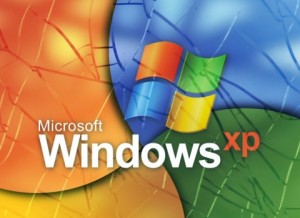 In just one year, on April 8, 2014, Microsoft will stop delivering security updates for Windows XP, the second most popular operating system in the world. Microsoft issued several blog posts Monday urging businesses to get out before it was too late.
In just one year, on April 8, 2014, Microsoft will stop delivering security updates for Windows XP, the second most popular operating system in the world. Microsoft issued several blog posts Monday urging businesses to get out before it was too late.
“You should take action to move off of Windows XP,” Microsoft said . “After April 8, 2014, there will be no new security updates, non-security hotfixes, free or paid assisted support options, or online technical content updates.”
Most XP support for regular consumers ended in 2009, although security updates continue to roll in. But not for long.
If you continue to run Windows XP on your PC, Microsoft says you’re on your own in just under a year. You can probably keep XP going with a good anti-virus package, but that will only protect you from known threats.
Should the worst happen and hackers uncover a particularly nasty zero-day flaw that lets the bad guys take over your PC, don’t look to Microsoft for help because the company is moving on. And like it or not, you probably should, too.
Despite an initial debut nearly 12 years ago and three major iterations of Windows since then, Windows XP continues to be widely used.
Worldwide, XP is second only to Windows 7 in terms of usage with 38.73 percent of the worldwide operating system market share, according to metrics firm NetMarketShare.
Windows 7 claims 44.73 percent, while Vista and Windows 8 combined account for just over 8 percent of worldwide usage.
The staying power of XP has been remarkable for an industry where something that is three years old is considered out of date and five years ago is ancient history.
XP’s longevity can be traced back to Microsoft’s struggles with Windows Vista. Back when Vista was known by its codename Longhorn, Microsoft struggled to develop the OS and Longhorn’s official release kept getting pushed further and further back. When Longhorn finally did emerge as Vista in 2007, consumer and business reaction to the new OS was roundly negative. Microsoft then rushed Windows 7 out the door in 2009, and the Vista debacle was largely forgotten.
Even when Windows 7 emerged, however, many businesses stayed put on XP. Oft-cited reasons for the business world’s reluctance to move on include custom software that only runs on XP and the prohibitive hardware and software costs of migrating to a new OS.
Many home users also refuse to dump XP arguing that upgrading is unnecessary when they still have a perfectly good PC, not to mention personal preference for Microsoft’s ageing OS.





